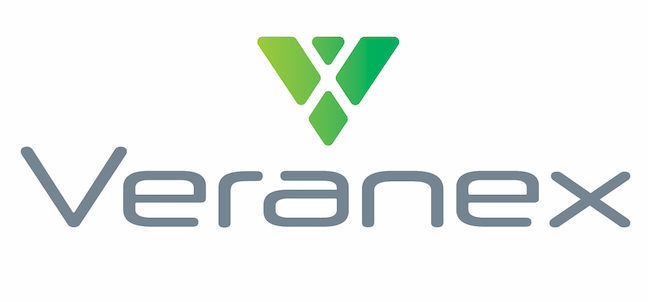Incorporating healthcare providers’ perspectives in the clinical development process is important for delivering medical devices, diagnostics and pharmaceuticals with high levels of clinical utility. Well-designed healthcare preference studies with vignette-based profiles can demonstrate clinical utility in a cost-effective, time-efficient and robust manner. These studies address many questions for innovators planning to launch successful products, including the following:
- Which characteristics (attributes) of patients or medical products are most important for physicians making decisions regarding diagnosis and treatment?
- What is the relative magnitude of each attribute’s importance in physician decision-making?
- What is the impact of patient characteristics and medical product attributes on physician decision-making?
- Would physicians change their medical recommendations to align with patient management guidelines if they had access to the medical product?
In this webinar, the speakers will discuss the methods used to demonstrate the clinical utility of medical products, and will explain how preference studies, such as conjoint analyses with physician survey data, fit into the armamentarium of techniques used to generate clinical utility evidence. They will provide an overview of conjoint analysis and describe the process of conducting a conjoint analysis study.
The speakers will present a case study showing how conjoint analysis assessed the clinical utility of a blood-based biomarker test that predicts the risk of kidney disease/decline in Type 2 diabetes mellitus patients. This case study will present typical results of a clinical utility study with conjoint analysis: 1) the relative importance of patient/test attributes for physician monitoring, prescribing and dosing decisions; 2) odds ratios for the impact of low-risk, moderate-risk and high-risk test results on physician decision-making; and 3) value messages supported by the study results.
Lastly, the speakers will demonstrate that with conjoint analysis they were able to:
- Quantify the clinically and statistically significant impact of the novel blood-based biomarker test on patient management decisions
- Objectively demonstrate the test’s value to physicians across a range of patient types by evaluating the relative importance of the blood-based biomarker test’s results compared with standard-of-care test results and other clinical factors
Register for this webinar as the speakers briefly review clinical utility and describe its importance to payers, physicians, patients and the manufacturers of medical devices, diagnostics/prognostics and therapeutics.
Speakers

Thomas Goss, Senior Vice President, Commercial Strategy and Market Access, Veranex
Dr. Thomas Goss has more than 25 years of experience managing and directing healthcare research, including examination of the impact of public and private payor policy on patient access, assessment of health-related quality-of-life, patient preference and patient satisfaction associated with healthcare interventions, and evaluation of health economic outcomes associated with healthcare innovations.
Tom’s work in health economic assessment includes development of health economic evaluations (cost effectiveness and budget impact analysis) for multiple markets including the US, EU-5, Japan and other markets. He also directs disease management program evaluations using patient outcomes data. He has published extensively in these areas and has more than 75 peer-reviewed publications and over 100 peer-reviewed abstracts and invited publications.
Prior to joining Boston Healthcare Associates (now Veranex), Dr. Goss was Vice President and Director of consulting services at Covance Market Access Services, where he had a 15-year career with increasing levels of responsibility in the areas of client management and executive management.
Dr. Goss received a BS from the Albany College of Pharmacy and a PharmD from the State University of New York at Buffalo. He completed graduate course work in epidemiology, and a postdoctoral fellowship in pharmacoepidemiology and outcomes research at the State University of New York at Buffalo. Dr. Goss has authored chapters in the American College of Clinical Pharmacy textbook Pharmacoeconomics and Outcomes: Applications for Patient Care, has participated in the ACCP Outcomes and Economics Practice Research Network and has held memberships and presented at the International Society of Pharmacoeconomics and Outcomes Research and the Academy of Managed Care Pharmacy. Dr. Goss is a former appointee to the US Center for Medicare & Medicaid Services (CMS) Medicare Evidence Development & Coverage Advisory Committee (MEDCAC).

Lauren Fusfeld, Director, Commercial Strategy and Market Access, Veranex
At Veranex, Lauren Fusfeld supports product launches by conducting conjoint analyses, pricing assessments and quantitative market research involving medical devices, diagnostic tools and pharmaceuticals. She designs online surveys to provide strategic insights regarding clinical positioning, product development and market sizing, and also develops health economic models and product forecasts for a variety of conditions, including oncology.
Prior to joining Veranex, she conducted unmet need analyses for two pharmaceutical consulting firms: Equinox Group and MORPACE Pharma, Inc. Lauren worked as a consultant and analyst on a range of indications including cardiovascular disease, central nervous system disorders, gastrointestinal disease, metabolic disorders, infectious disease and ophthalmologic conditions. For her pharmaceutical clients, Lauren created competitive assessments of their developmental drugs, evaluated licensing opportunities and developed complex, dynamic models to estimate drugs’ expected sales and market shares. Before consulting for pharmaceutical companies, she worked on cost/benefit analyses as a Research Analyst for Industrial Economics, an environmental economics consulting firm.
Lauren received her BA in economics and french from Amherst College and an MBA from the Johnson Graduate School of Management at Cornell University and her undergraduate degree in economics and french from Amherst College. She is a member of Phi Beta Kappa and Beta Gamma Sigma.
Who Should Attend?
- Market Access
- Payer Strategy/Value Strategy
- Health Economics
- Outcomes Research
- Advanced Diagnostics
What You Will Learn
Attendees will:
- Understand how conjoint analysis with efficient large sample survey data can inform evidence development plans for medical device, diagnostic and therapeutics companies
- Learn about the process of conducting a conjoint analysis study to demonstrate clinical utility to payers and healthcare providers
- View a case study that demonstrates how conjoint analysis assessed the clinical utility of a test predicting the risk of kidney disease/decline in Type 2 diabetes mellitus patients
Xtalks Partner
Veranex
Veranex is the only truly comprehensive, global, tech-enabled service provider dedicated to the medical technology industry. Offering expert guidance from concept through to commercialization and across the development continuum, Veranex enables accelerated speed to market, controlled development costs, development risk mitigation, and accelerated market viability assessment. At every stage, Veranex customers realize efficiencies in cost and time, while our integrated and comprehensive solutions unify the entire development process. With Veranex as your end-to-end partner, you’re well-positioned to deliver the safest, most effective devices to improve outcomes to patients everywhere.
You Must Login To Register for this Free Webinar
Already have an account? LOGIN HERE. If you don’t have an account you need to create a free account.
Create Account





